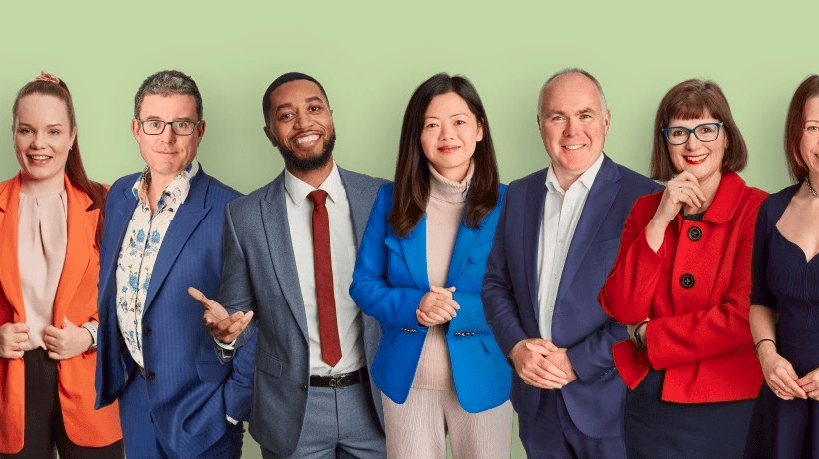Jayne Saywell, Business Adviser from sustainability consultants Black Skies Blue, has been working with ICAEW on a project to design a competency framework for accountants around the skills they need to master reporting, strategy and other lines of work around environmental, social and governance (ESG) and Task Force on Climate-related Financial Disclosure (TCFD) requirements.
As part of this, she spoke to many chartered accountants at various stages of engagement with sustainability. One thing was clear: the most fundamental skills needed for sustainability work lie in core accountancy.
“We need people that can come in with scepticism, that can make good decisions based on the information in front of them, that understand what suitable data looks like,” Saywell says.
“These are core accountancy skills. Ethical practice is incredibly important too, another core skill. Accountants already operate with integrity and are well versed in ethical dilemmas – particularly useful when trying to avoid green- or purpose-washing.”
Building on the foundation
It is important to embed sustainability knowledge on top of those core accountancy skills, says Saywell, who is speaking at the ICAEW Annual Conference in October. There are new frameworks, techniques, regulations and standards to understand and get to grips with. It’s not always easy to understand, but having a grounding as an accountant is a fantastic place to start.“Accountants are good at assessing risk, but what’s more interesting in that space is innovation and being able to see the key role to play in strategic management. For example, how a company sets its mission and vision in the context of a sustainable future, how to make sure that its objectives are actually connected to those and that the processes, controls and governance around that are effective.”
Accountants already know how to set, measure and manage verifiable goals and objectives, Saywell continues, it’s about looking at this through a sustainability lens. “You need to understand the wider social and environmental picture, how to get the right data, where the data comes from and how to process that data.”
Sceptical approach
Chartered accountants are also very good at approaching everything with scepticism and digging until there is a decent assurance chain behind any claim, as well as understanding the controls. These skills are critical for good sustainability reporting, Saywell explains.
There are many roles that accountants could potentially take in the sustainability sphere, depending on their strengths and interests. For instance, someone who is more detail-oriented and interested in working with concrete data might consider working on carbon footprinting and emissions calculations.
An accountant who is better at looking at the bigger picture and able to apply scepticism and make broader connections at that level would be well placed to work in strategy or understanding environmental, social or nature impacts.
Before you get to that specialism, you need to start with the basics, with something such as carbon literacy. Saywell rates ICAEW’s Sustainability Certificate as a good place to start. “You need to understand the planetary boundaries and the social foundations. Then you can start working out the direction your organisation needs to take and where your skill set and preferences would fit within a sustainability-related function.”
You can also learn a lot by checking you have things right yourself before you start to build in sustainability reporting or advice as a service, says Saywell. This was evident from the conversations with members for the framework project. “Those that were putting their own house in order first were a lot less gung ho about adding it in as a service. They were a lot more circumspect about knowing when they were ready to do that.”
Core competencies for accountants
Saywell has identified four critical areas for developing competency in sustainability reporting:
Technical skills
Knowing the relevant frameworks and regulations associated with non-financial reporting and assurance. This is an area where standards are developing and changing quickly, with some unclear definitions of new terminology. But it is learnable: more guidance documents are being issued every year, and more businesses are providing concrete examples of how to approach reporting against, for example, TCFD requirements.
Business acumen
Understanding business challenges and being able to forecast for the long term. It’s about taking the skills involved in planning and forecasting and applying them to 25-year timeframes and wider social and environmental impacts as well as profits. “You’ve got to be able to horizon scan and backcast, and to forecast in ways that you didn’t before, in a very uncertain world,” says Saywell. “You need to use scenario planning. This is all a boost of existing skills.”
Ethics
Applying a solid understanding of professional ethics to complex issues that may impact each other in different ways. “Like with your forecasting, you need to think about all of the scenarios and operations you’re looking at from an ethical perspective, taking a wider group of stakeholders into account. But you have a foundation with your accountancy skills,” says Saywell.
Interpersonal skills
Stepping outside the typical accountant’s comfort zone. It’s important to be able to have difficult conversations with people about sustainability. “You’re potentially upsetting people’s values and beliefs. The conversations can be uncomfortable at times. You have to really build your own resilience if you’re going to work in this space,” says Saywell.
“It’s not like you’re doing a cost benefit analysis on buying a new printer. You’re coming in and looking ahead 30 years at the impacts of current operations and activities. Asking everyone to strategise like that is difficult.”
Saywell recommends rehearsing conversations with people about the impacts of climate change and other sustainability issues first. “If you have to have a conversation with your client that needs to land, I would be practising first.”



